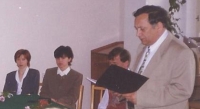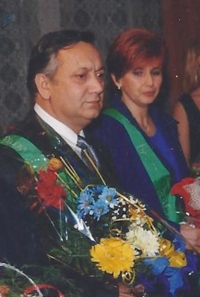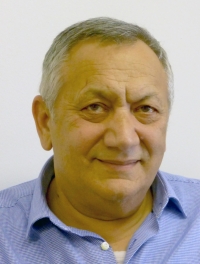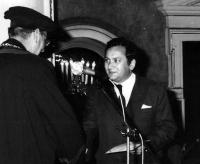We are all equal

Stáhnout obrázek
M.Phil František Godla was born in 1946 in a small village Ovčie in Šariš region (Prešov district) as the youngest of 10 children. There were only few Roma families in the village at this time and the relationship with the majority was very fair. The house of F. Godla‘s family stood right in the middle of the village. His father was a shoemaker and a musician. He was well-skilled in both of these professions and therefore had many customers. When F. Godla was 12 years old his father died. His mother and his siblings provided for the family from then on. The first years of school education F. Godla spent in elementary school in Ovčie and last years of elementary school he completed in the neighboring village of Hrabkov. After having completed elementary school he continued at Secondary Comprehensive School in Prešov (predecessor of present-day gymnasiums) which he successfully completed in 1965 earning high school-level diploma. Afterwards he went on to study philosophy and history at Philosophical faculty of Pavol Jozef Šafárik University in Prešov (UPJŠ FF). He graduated in 1970 and began to work as a teacher at gymnasium in Sabinov (present-day Anton Prídavka Gymnázium) until 2004 (except for one compelled one-year break when he was a teacher in Prešov). He earned Master of Philosophy degree in 1985 from The Department of Philosophy, FF UPJŠ in Prešov. He became a headmaster of Sabinov gymnasium in 1997, most probably the first Roma to be appointed a headmaster. Between 2004 and 2010 he went to work at the education section in The Self-Governing Prešov Region. Since 2010 he has worked as a methodologist of national projects aimed at Roma education at Methodology and Education Centre in Prešov. F. Godla is an important figure representing Roma national minority movement in Slovakia. He is also engaged in non-governmental sector and he is a member of many occupational organizations and committees focused on Roma education. He also translates and publishes in Roma language. F. Godla got married in 1970 to Jozefa, they have two children - daughter Erika (1973) and son František (1975).F. Godla got married in 1970 to Jozefa, they have two children - daughter Erika (1973) and son František (1975).



